Informationen zur Zeitschrift
Startseite » Programm » BIOS 2-2018 | (Post-)Industrial Memories. Oral History and Structural Change
BIOS 2-2018 | (Post-)Industrial Memories. Oral History and Structural Change
Erscheinungsdatum : 27.10.2020
0,00 € - 34,00 €
Inhalt
BIOS – Zeitschrift für Biographieforschung, Oral History und Lebensverlaufsanalysen
2-2018: (Post-)Industrial Memories. Oral History and Structural Change
hrsg. von: Stefan Moitra & Katarzyna Nogueira
Schwerpunktbeiträge
Stefan Moitra / Katarzyna Nogueira: (Post-)Industrial Memories. Oral History and Structural Change. Introduction
Arthur McIvor: “Scrap-Heap Storiesˮ: Oral Narratives of Labour and Loss in Scottish Mining and Manufacturing
Thomas Schürmann: Conditions for a Successful Farewell. Memories of Coal Mining in Ibbenbüren
Stefan Moitra: Winning or Losing? German Pit Closure and the Ambiguities of Memory
Irene Díaz Martínez: The Trauma of a Non-Traumatic Decline. Narratives of Deindustrialisation in Asturian Mining: The HUNOSA Case
Antoinette Holm / Erik Eklund: A Post-Carbon Future? Narratives of Change and Identity in the Latrobe Valley, Australia
Roberta Garruccio: Visualising Deindustrial Ruins in an Oral History Project: Sesto San Giovanni (Milan)
Katarzyna Nogueira: “Guest Workers” in Mining. Historicising the Industrial Past in the Ruhr region from the Bottom Up?
Janine Schemmer: “We Are in the Museum Nowˮ. Narrating and Representing Dock Work
Olaf Schmidt-Rutsch: Old Tales and New Stories. Working with Oral History at LWL-Industrial Museum Henrichshütte Hattingen
Melinda Harlov-Csortán: The Importance of Oral History in (Industrial) Heritagisation
Inhaltsverzeichnis herunterladen
Einzelbeitrag-Download (Open Access/Gebühr): bios.budrich-journals.de
Sie können sich hier für den BIOS-Alert anmelden.
Zusätzliche Information
| Verlag | |
|---|---|
| ISSN | 0933-5315 |
| eISSN | 2196-243X |
| Jahrgang | 31. Jahrgang 2018 |
| Ausgabe | 2 |
| Erscheinungsdatum | 27.10.2020 |
| Umfang | 148 |
| Sprache | Deutsch |
| Format | 17 x 24 cm |
| DOI | |
| Open Access-Lizenz | |
| Homepage |
Autor*innen
SchlagwörterAsturias, Australia, coal mining, deindustrial ruin, deindustrialisation, dock work, Germany, guest workers, heritagisation, Hunosa, Ibbenbüren, industrialisation, labour, Latrobe Valley, LWL industrial museum Henrichshütte, manufacturing, mining, Oral History, pit closure, Ruhr region, Scotland, Sesto San Giovanni
Abstracts
“Scrap-Heap Storiesˮ: Oral Narratives of Labour and Loss in Scottish Mining and Manufacturing (Arthur McIvor)
This article is an attempt to comprehend deindustrialisation and the impact of plant downsizing and closures in Scotland since the 1970s through listening to the voices of workers and reflecting on their ways of telling, whilst making some observations on how an oral history methodology can add to our understanding. It draws upon a rich bounty of oral history projects and collections undertaken in Scotland over recent decades. The lush description and often intense articulated emotion help us as academic “outsidersˮ to better understand how lives were profoundly affected by plant closures, getting us beyond statistical body counts and overly sentimentalised and nostalgic representations of industrial work to more nuanced understandings of the meanings and impacts of job loss. In recalling their lived experience of plant run-downs and closures, narrators are informing and interpreting; projecting a sense of self in the process and drawing meaning from their working lives. My argument here is that we need to listen attentively and learn from those who bore witness and try to make sense of these diverse, different and sometimes contradictory stories. We should take cognisance of silences and transgressing voices as well as dominant, hegemonic narratives if we are to deepen the conversation and understand the complex but profound impacts that deindustrialisation had on traditional working-class communities in Scotland, as well as elsewhere.
» Einzelbeitrag kostenlos herunterladen (Budrich Journals)
Conditions for a Successful Farewell. Memories of Coal Mining in Ibbenbüren (Thomas Schürmann)
In 2018, when the last German hard coal mines were closed down, the conditions were relatively favourable, especially in the coal region of Ibbenbüren in Northern Westphalia. This district is marked by small towns and medium-sized enterprises with a relatively low unemployment rate. On the one hand, the shutdown without greater lay-offs was enabled by the co-working of the trade union and the mining company. This, on the other hand, depended to a large extent on external influences, not least on state subsidies and the preceding integration of the German hard coal industry into a rescue company. Furthermore, the relatively smooth transition would not have been possible without the willingness of many miners of covering far distances to other locations. This article is based on narrative interviews conducted before the shutdown of 2018 with miners and other persons involved, focusing on their memories of mining in Ibbenbüren.
» Einzelbeitrag kostenlos herunterladen (Budrich Journals)
Winning or Losing? German Pit Closure and the Ambiguities of Memory (Stefan Moitra)
The history of the West German coal mining industry since the late 1950s can be seen as a story of industrial decline and at the same time as a success story for a corporatist politics of “social responsibility”. The mining trade union together with the state and the companies all participated in sustaining a mode of shrinkage that allowed to avoid sudden mass unemployment and keep up a slow fading of the industry over six decades. This process, however, was a matter of constant re-negotiation. Calling on the principle of social responsibility constituted a crucial element in the moral economy of industrial decline. Yet the state’s structural and financial support for the mining communities went along with changing work environments and increased pressures for the mine workers. This article juxtaposes the memories of shop stewards, trade union officials and other workers’ representatives who had to negotiate such terms of industrial change with the narratives of mine workers and employees subjected to these measures. It asks for the extent to which the narratives and interpretations of mine closure overlap or differ for these two memory collectives.
» Einzelbeitrag kostenlos herunterladen (Budrich Journals)
The Trauma of a Non-Traumatic Decline. Narratives of Deindustrialisation in Asturian Mining: The HUNOSA Case (Irene Díaz Martínez)
Based on interviews conducted in the 1990s, the early 2000s and, again, since 2013, this article discusses views on deindustrialisation in the Asturian coalfields. While the historical experience of the Asturian miners has been shaped by forms of workers’ radicalism and their Anti-Francoist resistance, the conflicts around the shrinking of the coal industry have taken on a paradoxical outlook. On the one hand, the labour movement, and the trade unions in particular, have succeeded in securing measures to ease the transition into a post-industrial period. On the other hand, these measures are almost perceived as a “shameful victory”. Some aspects of this antagonist perception will be addressed in the following. This concerns the emotional attachment to the experiences and social bonds linked to working in the now obsolete coal mining industry. At the same time, the instruments of social security to help the miners master the crisis lead to almost contentious constellations with a younger generation that is facing severe unemployment. Thus, the aim of preventing deindustrialization from becoming a cultural trauma is therefore a difficult task in practice.
» Einzelbeitrag kostenlos herunterladen (Budrich Journals)
A Post-Carbon Future? Narratives of Change and Identity in the Latrobe Valley, Australia (Antoinette Holm, Erik Eklund)
The Latrobe Valley, Australia, is a resource community in transition. The post-carbon future has yet to be realised, and the immediate future is one of economic uncertainty. A state and national economy was built upon energy production from brown coal (or lignite) since the early 1920s, but the realities of changing international and national markets and economies for coal-fired electricity are seeing its value diminish. The consequences of mining and power generation, of course, were left to be experienced by the residents of the Valley. The 2017 closure of Hazelwood Power Station and the Morwell or Hazelwood open-cut mine (as it has been called since the 2014 mine fire) proved to be the Valley’s tipping point for a future without brown coal generation. This article uses the case study of the Latrobe Valley to explore government and corporate renderings of the transition, and the closure of Hazelwood Power Station in particular. We introduce the concept of “extractive meaningˮ to understand and theorise the way that narratives are evoked by government and coal-related corporations that use the structures of collective memory and oral history, but that appear to be more akin to practices that seek to codify, confine, and strip popular and local experience of its meaning. Regional memory and oral history are blanketed under a powerful set of discourses. In this exploratory analysis, we contend that in this version of regional restructuring neo-liberalism is given full rein, history and heritage are in flux with strong Government and corporate direction to assist current policy priorities, even whilst dissonant elements of a vernacular interpretation of regional changes are still discernible.
» Einzelbeitrag kostenlos herunterladen (Budrich Journals)
Visualising Deindustrial Ruins in an Oral History Project: Sesto San Giovanni (Milan) (Roberta Garruccio)
My contribution focuses on a photo collection dedicated to Sesto San Giovanni, a medium-sized city north of Milan that became the fifth largest industrial district in Italy after WWII. Built around the beginning of the 20th century, its heavy industries were dismantled before that century drew to its close. Closely connected to a campaign of interviews conducted by historians and social anthropologists, the images under consideration aim to relate the photographic representation of former industrial spaces in Sesto as they are today to the oral testimonies and memories gathered between 2013 and 2015. The article elaborates on several points: it briefly sketches the reasons why Sesto San Giovanni is a relevant place to study structural change and deindustrialisation; defines the nature of the visual documentation we gathered during our oral history project; describes the context where this evidence has been conceived and collected; and attempts some suggestions to understand where the fascination that emanates from these images lies, and what contemporary viewers can perceive from them as part of a large deindustrial ruin imagery, something becoming a “global genre”.
» Einzelbeitrag kostenlos herunterladen (Budrich Journals)
“Guest Workers” in Mining. Historicising the Industrial Past in the Ruhr region from the Bottom Up? (Katarzyna Nogueira)
Over the past five to six decades, oral history has become a complex and diverse tool, not only for uncovering and analysing individual and collective patterns of memory but also to inscribe them into public historical narratives. In the wake of the decline of the mining industry in the Ruhr region, local history workshops, academic historians, filmmakers, and museum practitioners began to construe miners and mining communities as historical subjects from the bottom up. Throughout this time, personal narrations played an increasingly important role as both a source of research and a tool for public historical representations. Using the case study of the Ruhr area, this article deals with the functions of public oral history narrations about the region’s mining past. It will particularly address the question of how the work and life stories of Turkish immigrant labourers, officially labelled as “guest workers”, have been represented in regional historical culture. To what extent did they become narrative agents in the Ruhr’s historiography, from a democratic and participatory “history from below” to an increasingly institutionalised approach in public history?
» Einzelbeitrag kostenlos herunterladen (Budrich Journals)
“We Are in the Museum Nowˮ. Narrating and Representing Dock Work (Janine Schemmer)
Global developments like the introduction of the container since the 1960s strongly influenced work structures and spaces of action for dock workers. This article looks at the experiences of these workers and their positioning within this process. It presents some central findings of my PhD dissertation, an empirical study analysing the narrations of former Hamburg dock workers about spatial and socio-cultural transformations. Only a few years after the arrival of the container in Hamburg, skilled professions replaced traditional ones in order to secure container handling. These structural transformations led to better social and financial conditions of those able to continue their work and resulted in changed self-images of those pursuing a career. Besides the technical transformation, a parallel process of musealisation of dock work took place, documenting these developments. The involvement and commitment of former workers in the Harbour Museum further indicate a shift in the economic and cultural capital of some protagonists.
» Einzelbeitrag kostenlos herunterladen (Budrich Journals)
Old Tales and New Stories. Working with Oral History at LWL-Industrial Museum Henrichshütte Hattingen (Olaf Schmidt-Rutsch)
From the beginning, oral history was formative for developing the former Henrichshütte Ironworks in Hattingen into a museum. Part of the LWL-Industriemuseum/Westphalian State Museum of Industrial Heritage, the Henrichshütte’s museal practice always aimed at people’s life and work experience rather than aspects of pure technology. Taking the example of Henrichshütte, this article describes several aspects of work with oral history within the LWL-Industriemuseum as a whole, from exhibition concepts to volunteer work, and discusses the development towards an archive of work in the industrial age, covering six branches and around 1,600 interviews.
» Einzelbeitrag kostenlos herunterladen (Budrich Journals)
The Importance of Oral History in (Industrial) Heritagisation (Melinda Harlov-Csortán)
The UNESCO World Heritage Committee and its professional institutions, the international body of cultural and natural heritage, emphasise the importance of the human aspect, the individuals and groups who are involved in the heritage context: the authentic owner/practitioner; the contemporary local or inheritor; the professional, who understands; the policy maker, who protects, etc. Accordingly, in the heritagisation process, oral memories and interactions play defining roles on many levels. They can justify the heritage management process as well as construct what should be valued. This paper looks at this complex status and the roles oral history examples can have in the research and management process. The paper focuses on the intangible aspect within the category of industrial heritage as the specialised committee of UNESCO’S World Heritage Council defines and categorises it. Accordingly, it presents an international perspective, although heavily European-centred, as many critics have already expressed. The time frame focuses on the one and a half decades after 2003, when TICCIH, the International Committee for the Conservation of Industrial Heritage defined its objective; however, previous practices and research examples are mentioned as well. The paper is based on the comparative and textual analysis of theoretical texts (of oral history research), general guidelines (such as charters of the international heritage organisations), and case studies. The aim of the paper is not to provide a chronological overview of the overlaps between industrial and intangible heritage management in the European discourse but to point out the effective realisation of incorporating oral history into (industrial) heritage studies.
» Einzelbeitrag kostenlos herunterladen (Budrich Journals)
Inhalt
Inhalt
BIOS – Zeitschrift für Biographieforschung, Oral History und Lebensverlaufsanalysen
2-2018: (Post-)Industrial Memories. Oral History and Structural Change
hrsg. von: Stefan Moitra & Katarzyna Nogueira
Schwerpunktbeiträge
Stefan Moitra / Katarzyna Nogueira: (Post-)Industrial Memories. Oral History and Structural Change. Introduction
Arthur McIvor: “Scrap-Heap Storiesˮ: Oral Narratives of Labour and Loss in Scottish Mining and Manufacturing
Thomas Schürmann: Conditions for a Successful Farewell. Memories of Coal Mining in Ibbenbüren
Stefan Moitra: Winning or Losing? German Pit Closure and the Ambiguities of Memory
Irene Díaz Martínez: The Trauma of a Non-Traumatic Decline. Narratives of Deindustrialisation in Asturian Mining: The HUNOSA Case
Antoinette Holm / Erik Eklund: A Post-Carbon Future? Narratives of Change and Identity in the Latrobe Valley, Australia
Roberta Garruccio: Visualising Deindustrial Ruins in an Oral History Project: Sesto San Giovanni (Milan)
Katarzyna Nogueira: “Guest Workers” in Mining. Historicising the Industrial Past in the Ruhr region from the Bottom Up?
Janine Schemmer: “We Are in the Museum Nowˮ. Narrating and Representing Dock Work
Olaf Schmidt-Rutsch: Old Tales and New Stories. Working with Oral History at LWL-Industrial Museum Henrichshütte Hattingen
Melinda Harlov-Csortán: The Importance of Oral History in (Industrial) Heritagisation
Inhaltsverzeichnis herunterladen
Einzelbeitrag-Download (Open Access/Gebühr): bios.budrich-journals.de
Sie können sich hier für den BIOS-Alert anmelden.
Bibliografie
Zusätzliche Information
| Verlag | |
|---|---|
| ISSN | 0933-5315 |
| eISSN | 2196-243X |
| Jahrgang | 31. Jahrgang 2018 |
| Ausgabe | 2 |
| Erscheinungsdatum | 27.10.2020 |
| Umfang | 148 |
| Sprache | Deutsch |
| Format | 17 x 24 cm |
| DOI | |
| Open Access-Lizenz | |
| Homepage |
Produktsicherheit
Bewertungen (0)
Bewertungen
Es gibt noch keine Bewertungen.
Autor*innen
Autor*innen
Schlagwörter
SchlagwörterAsturias, Australia, coal mining, deindustrial ruin, deindustrialisation, dock work, Germany, guest workers, heritagisation, Hunosa, Ibbenbüren, industrialisation, labour, Latrobe Valley, LWL industrial museum Henrichshütte, manufacturing, mining, Oral History, pit closure, Ruhr region, Scotland, Sesto San Giovanni
Abstracts
Abstracts
“Scrap-Heap Storiesˮ: Oral Narratives of Labour and Loss in Scottish Mining and Manufacturing (Arthur McIvor)
This article is an attempt to comprehend deindustrialisation and the impact of plant downsizing and closures in Scotland since the 1970s through listening to the voices of workers and reflecting on their ways of telling, whilst making some observations on how an oral history methodology can add to our understanding. It draws upon a rich bounty of oral history projects and collections undertaken in Scotland over recent decades. The lush description and often intense articulated emotion help us as academic “outsidersˮ to better understand how lives were profoundly affected by plant closures, getting us beyond statistical body counts and overly sentimentalised and nostalgic representations of industrial work to more nuanced understandings of the meanings and impacts of job loss. In recalling their lived experience of plant run-downs and closures, narrators are informing and interpreting; projecting a sense of self in the process and drawing meaning from their working lives. My argument here is that we need to listen attentively and learn from those who bore witness and try to make sense of these diverse, different and sometimes contradictory stories. We should take cognisance of silences and transgressing voices as well as dominant, hegemonic narratives if we are to deepen the conversation and understand the complex but profound impacts that deindustrialisation had on traditional working-class communities in Scotland, as well as elsewhere.
» Einzelbeitrag kostenlos herunterladen (Budrich Journals)
Conditions for a Successful Farewell. Memories of Coal Mining in Ibbenbüren (Thomas Schürmann)
In 2018, when the last German hard coal mines were closed down, the conditions were relatively favourable, especially in the coal region of Ibbenbüren in Northern Westphalia. This district is marked by small towns and medium-sized enterprises with a relatively low unemployment rate. On the one hand, the shutdown without greater lay-offs was enabled by the co-working of the trade union and the mining company. This, on the other hand, depended to a large extent on external influences, not least on state subsidies and the preceding integration of the German hard coal industry into a rescue company. Furthermore, the relatively smooth transition would not have been possible without the willingness of many miners of covering far distances to other locations. This article is based on narrative interviews conducted before the shutdown of 2018 with miners and other persons involved, focusing on their memories of mining in Ibbenbüren.
» Einzelbeitrag kostenlos herunterladen (Budrich Journals)
Winning or Losing? German Pit Closure and the Ambiguities of Memory (Stefan Moitra)
The history of the West German coal mining industry since the late 1950s can be seen as a story of industrial decline and at the same time as a success story for a corporatist politics of “social responsibility”. The mining trade union together with the state and the companies all participated in sustaining a mode of shrinkage that allowed to avoid sudden mass unemployment and keep up a slow fading of the industry over six decades. This process, however, was a matter of constant re-negotiation. Calling on the principle of social responsibility constituted a crucial element in the moral economy of industrial decline. Yet the state’s structural and financial support for the mining communities went along with changing work environments and increased pressures for the mine workers. This article juxtaposes the memories of shop stewards, trade union officials and other workers’ representatives who had to negotiate such terms of industrial change with the narratives of mine workers and employees subjected to these measures. It asks for the extent to which the narratives and interpretations of mine closure overlap or differ for these two memory collectives.
» Einzelbeitrag kostenlos herunterladen (Budrich Journals)
The Trauma of a Non-Traumatic Decline. Narratives of Deindustrialisation in Asturian Mining: The HUNOSA Case (Irene Díaz Martínez)
Based on interviews conducted in the 1990s, the early 2000s and, again, since 2013, this article discusses views on deindustrialisation in the Asturian coalfields. While the historical experience of the Asturian miners has been shaped by forms of workers’ radicalism and their Anti-Francoist resistance, the conflicts around the shrinking of the coal industry have taken on a paradoxical outlook. On the one hand, the labour movement, and the trade unions in particular, have succeeded in securing measures to ease the transition into a post-industrial period. On the other hand, these measures are almost perceived as a “shameful victory”. Some aspects of this antagonist perception will be addressed in the following. This concerns the emotional attachment to the experiences and social bonds linked to working in the now obsolete coal mining industry. At the same time, the instruments of social security to help the miners master the crisis lead to almost contentious constellations with a younger generation that is facing severe unemployment. Thus, the aim of preventing deindustrialization from becoming a cultural trauma is therefore a difficult task in practice.
» Einzelbeitrag kostenlos herunterladen (Budrich Journals)
A Post-Carbon Future? Narratives of Change and Identity in the Latrobe Valley, Australia (Antoinette Holm, Erik Eklund)
The Latrobe Valley, Australia, is a resource community in transition. The post-carbon future has yet to be realised, and the immediate future is one of economic uncertainty. A state and national economy was built upon energy production from brown coal (or lignite) since the early 1920s, but the realities of changing international and national markets and economies for coal-fired electricity are seeing its value diminish. The consequences of mining and power generation, of course, were left to be experienced by the residents of the Valley. The 2017 closure of Hazelwood Power Station and the Morwell or Hazelwood open-cut mine (as it has been called since the 2014 mine fire) proved to be the Valley’s tipping point for a future without brown coal generation. This article uses the case study of the Latrobe Valley to explore government and corporate renderings of the transition, and the closure of Hazelwood Power Station in particular. We introduce the concept of “extractive meaningˮ to understand and theorise the way that narratives are evoked by government and coal-related corporations that use the structures of collective memory and oral history, but that appear to be more akin to practices that seek to codify, confine, and strip popular and local experience of its meaning. Regional memory and oral history are blanketed under a powerful set of discourses. In this exploratory analysis, we contend that in this version of regional restructuring neo-liberalism is given full rein, history and heritage are in flux with strong Government and corporate direction to assist current policy priorities, even whilst dissonant elements of a vernacular interpretation of regional changes are still discernible.
» Einzelbeitrag kostenlos herunterladen (Budrich Journals)
Visualising Deindustrial Ruins in an Oral History Project: Sesto San Giovanni (Milan) (Roberta Garruccio)
My contribution focuses on a photo collection dedicated to Sesto San Giovanni, a medium-sized city north of Milan that became the fifth largest industrial district in Italy after WWII. Built around the beginning of the 20th century, its heavy industries were dismantled before that century drew to its close. Closely connected to a campaign of interviews conducted by historians and social anthropologists, the images under consideration aim to relate the photographic representation of former industrial spaces in Sesto as they are today to the oral testimonies and memories gathered between 2013 and 2015. The article elaborates on several points: it briefly sketches the reasons why Sesto San Giovanni is a relevant place to study structural change and deindustrialisation; defines the nature of the visual documentation we gathered during our oral history project; describes the context where this evidence has been conceived and collected; and attempts some suggestions to understand where the fascination that emanates from these images lies, and what contemporary viewers can perceive from them as part of a large deindustrial ruin imagery, something becoming a “global genre”.
» Einzelbeitrag kostenlos herunterladen (Budrich Journals)
“Guest Workers” in Mining. Historicising the Industrial Past in the Ruhr region from the Bottom Up? (Katarzyna Nogueira)
Over the past five to six decades, oral history has become a complex and diverse tool, not only for uncovering and analysing individual and collective patterns of memory but also to inscribe them into public historical narratives. In the wake of the decline of the mining industry in the Ruhr region, local history workshops, academic historians, filmmakers, and museum practitioners began to construe miners and mining communities as historical subjects from the bottom up. Throughout this time, personal narrations played an increasingly important role as both a source of research and a tool for public historical representations. Using the case study of the Ruhr area, this article deals with the functions of public oral history narrations about the region’s mining past. It will particularly address the question of how the work and life stories of Turkish immigrant labourers, officially labelled as “guest workers”, have been represented in regional historical culture. To what extent did they become narrative agents in the Ruhr’s historiography, from a democratic and participatory “history from below” to an increasingly institutionalised approach in public history?
» Einzelbeitrag kostenlos herunterladen (Budrich Journals)
“We Are in the Museum Nowˮ. Narrating and Representing Dock Work (Janine Schemmer)
Global developments like the introduction of the container since the 1960s strongly influenced work structures and spaces of action for dock workers. This article looks at the experiences of these workers and their positioning within this process. It presents some central findings of my PhD dissertation, an empirical study analysing the narrations of former Hamburg dock workers about spatial and socio-cultural transformations. Only a few years after the arrival of the container in Hamburg, skilled professions replaced traditional ones in order to secure container handling. These structural transformations led to better social and financial conditions of those able to continue their work and resulted in changed self-images of those pursuing a career. Besides the technical transformation, a parallel process of musealisation of dock work took place, documenting these developments. The involvement and commitment of former workers in the Harbour Museum further indicate a shift in the economic and cultural capital of some protagonists.
» Einzelbeitrag kostenlos herunterladen (Budrich Journals)
Old Tales and New Stories. Working with Oral History at LWL-Industrial Museum Henrichshütte Hattingen (Olaf Schmidt-Rutsch)
From the beginning, oral history was formative for developing the former Henrichshütte Ironworks in Hattingen into a museum. Part of the LWL-Industriemuseum/Westphalian State Museum of Industrial Heritage, the Henrichshütte’s museal practice always aimed at people’s life and work experience rather than aspects of pure technology. Taking the example of Henrichshütte, this article describes several aspects of work with oral history within the LWL-Industriemuseum as a whole, from exhibition concepts to volunteer work, and discusses the development towards an archive of work in the industrial age, covering six branches and around 1,600 interviews.
» Einzelbeitrag kostenlos herunterladen (Budrich Journals)
The Importance of Oral History in (Industrial) Heritagisation (Melinda Harlov-Csortán)
The UNESCO World Heritage Committee and its professional institutions, the international body of cultural and natural heritage, emphasise the importance of the human aspect, the individuals and groups who are involved in the heritage context: the authentic owner/practitioner; the contemporary local or inheritor; the professional, who understands; the policy maker, who protects, etc. Accordingly, in the heritagisation process, oral memories and interactions play defining roles on many levels. They can justify the heritage management process as well as construct what should be valued. This paper looks at this complex status and the roles oral history examples can have in the research and management process. The paper focuses on the intangible aspect within the category of industrial heritage as the specialised committee of UNESCO’S World Heritage Council defines and categorises it. Accordingly, it presents an international perspective, although heavily European-centred, as many critics have already expressed. The time frame focuses on the one and a half decades after 2003, when TICCIH, the International Committee for the Conservation of Industrial Heritage defined its objective; however, previous practices and research examples are mentioned as well. The paper is based on the comparative and textual analysis of theoretical texts (of oral history research), general guidelines (such as charters of the international heritage organisations), and case studies. The aim of the paper is not to provide a chronological overview of the overlaps between industrial and intangible heritage management in the European discourse but to point out the effective realisation of incorporating oral history into (industrial) heritage studies.
» Einzelbeitrag kostenlos herunterladen (Budrich Journals)




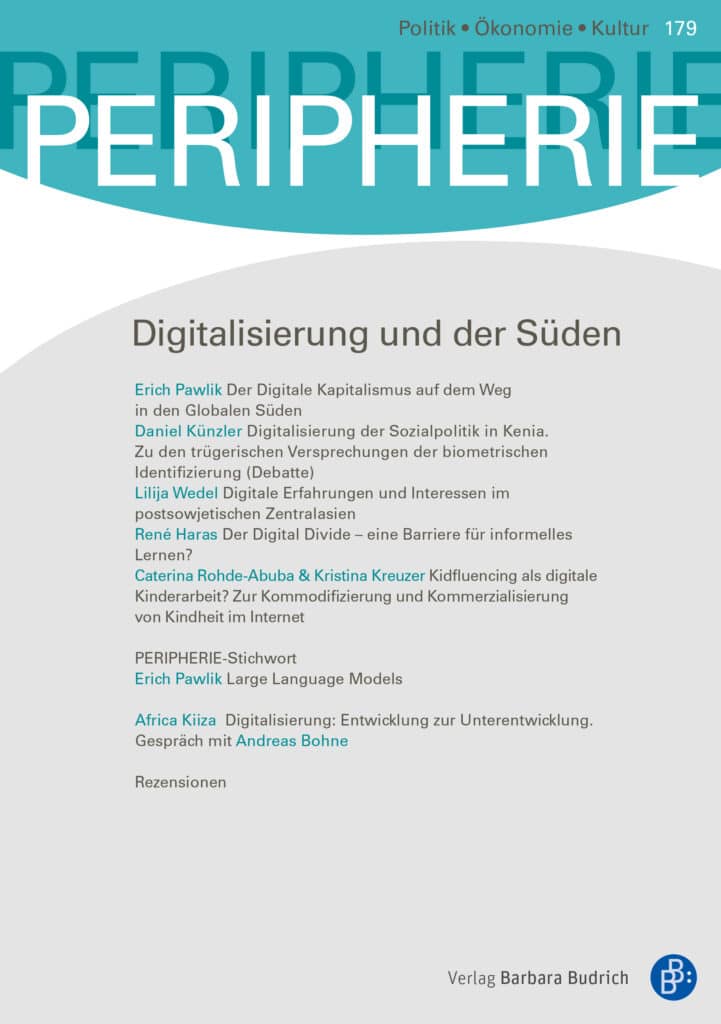
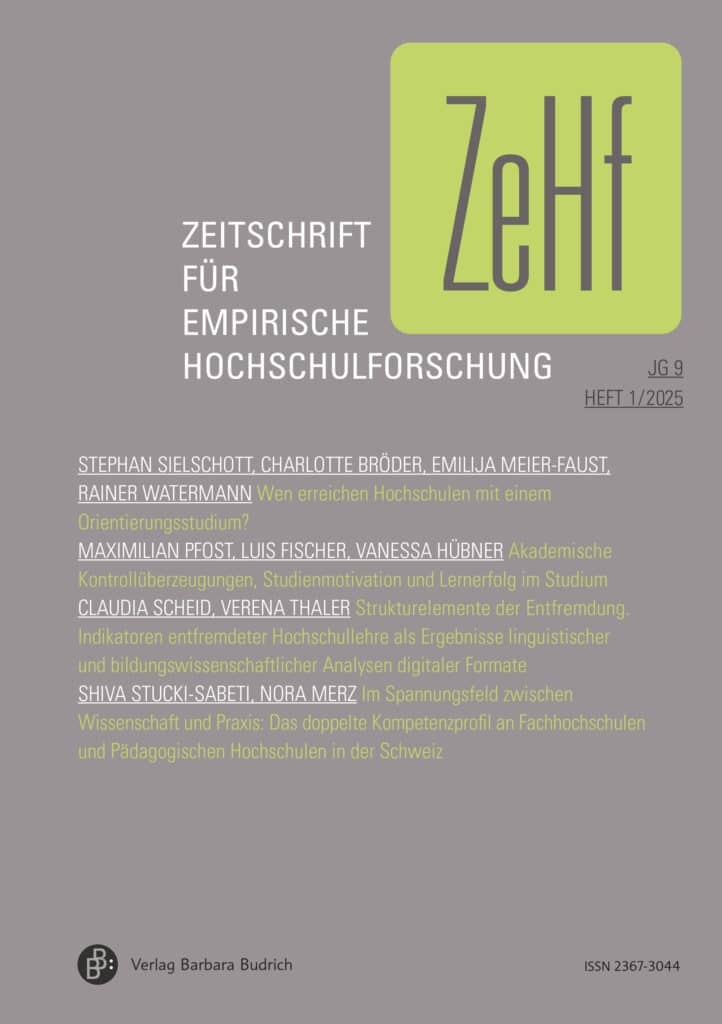
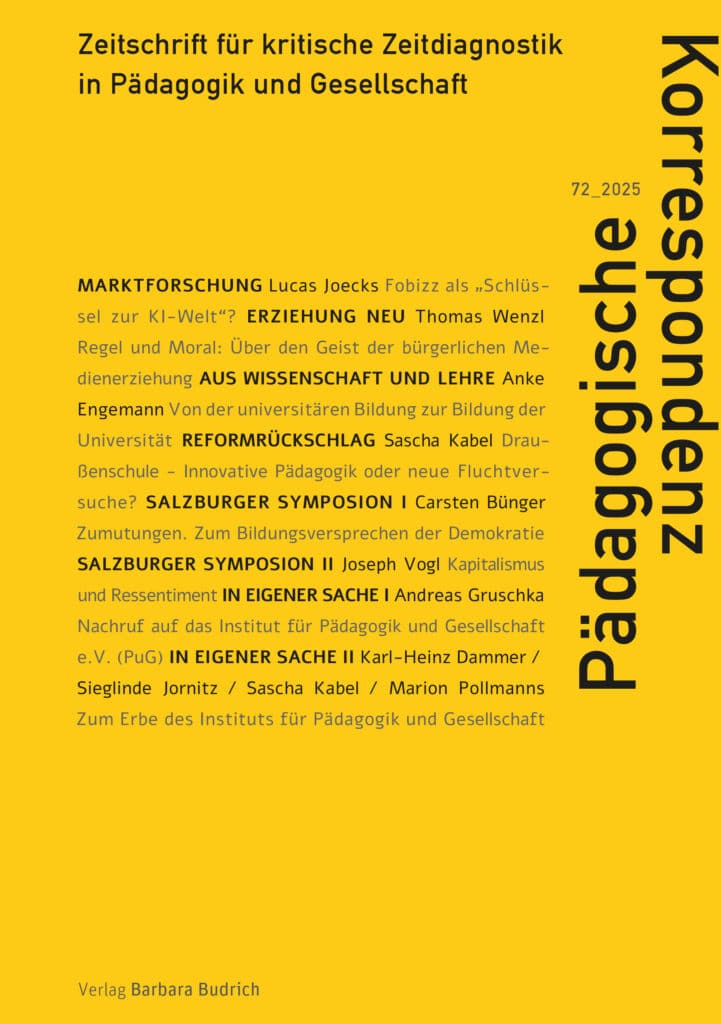
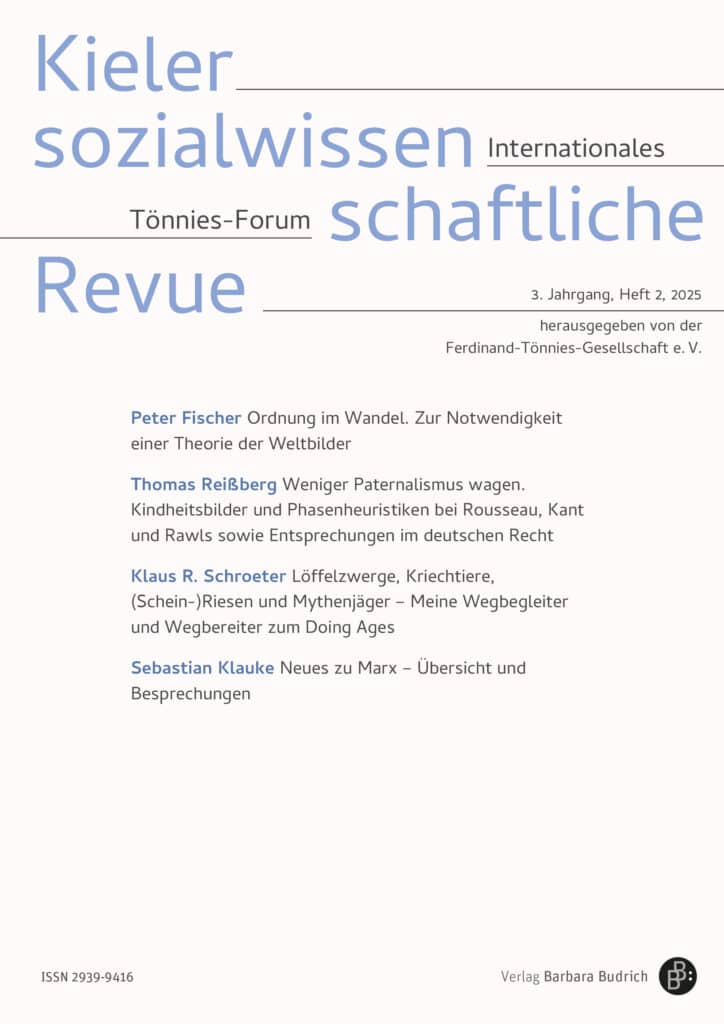
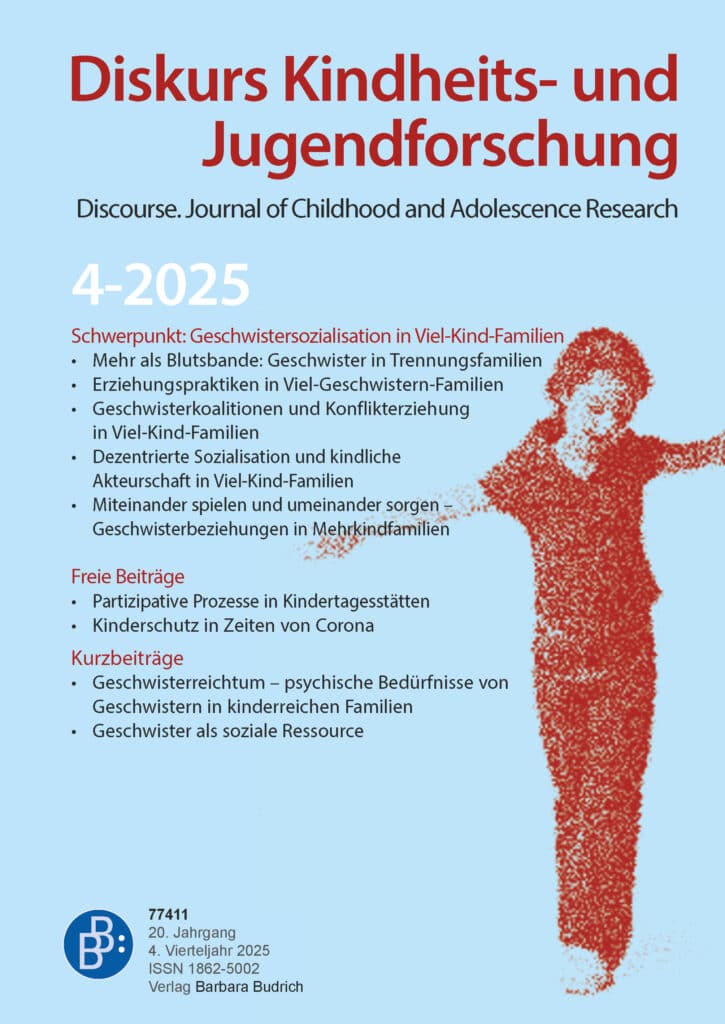

Bewertungen
Es gibt noch keine Bewertungen.